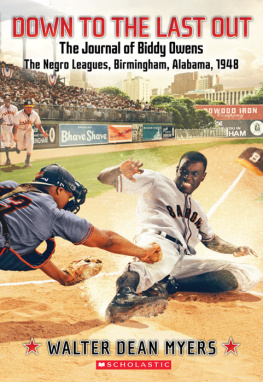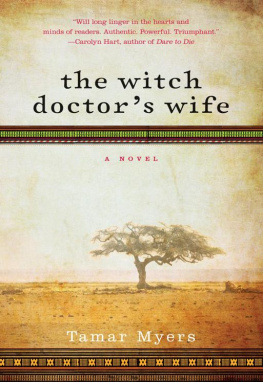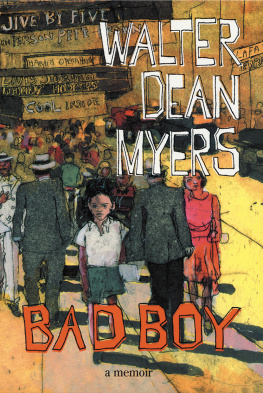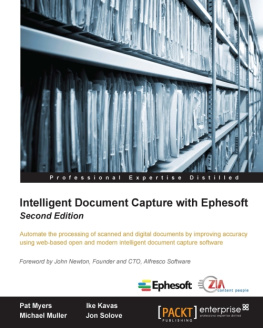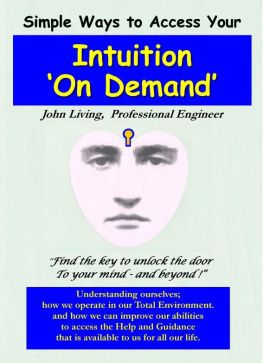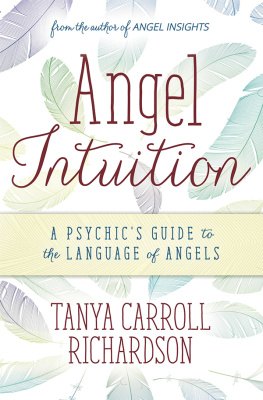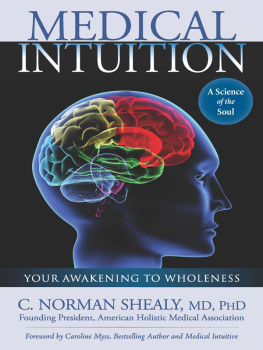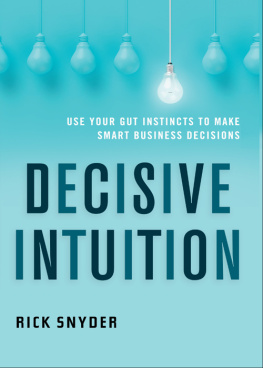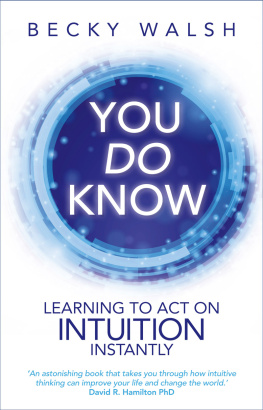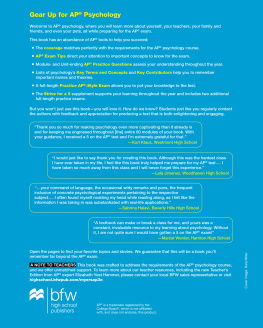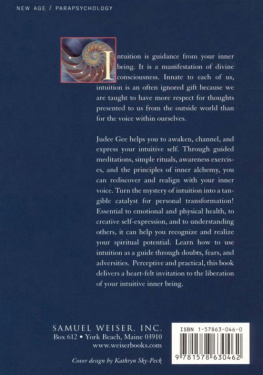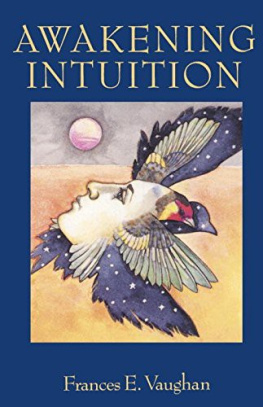Intuition
Intuition
Its Powers and Perils
David G. Myers

Copyright 2002 by the David and Carol Myers Foundation.
All rights reserved.
This book may not be reproduced, in whole or in part, including illustrations, in any form (beyond that copying permitted by Sections 107 and 108 of the U.S. Copyright Law and except by reviewers for the public press), without written permission from the publishers.
pp. : Illustrations from David G. Myers, Psychology, 6th ed. (New York: Worth, 2001). Used with permission.
p. : Illustration courtesy Al Seckel (IllusionWorks.com), from The Art of Optical Illusions (London: Carlton, 2000).
p. : Illustration courtesy Pawel Lewicki.
pp. 108: BB and airplane exercises from Michael McCloskey, Naive Theories of Motion, in D. Gentner and A. L. Stevens (eds.), Mental Model (Hillsdale, N.J.: Erlbaum, 1983). Used with permission. Water-level exercise from H. Hecht and D. R. Proffitt, The Price of Expertise: Effects of Experience on the Water-Level Task, Psychological Science 6 (1995): 9095. Used with permission.
p. : Checkboard illustration courtesy Ruma Falk, Hebrew University, Jerusalem.
p. : Table courtesy Chance Team, Dartmouth College, from Using Lotteries in Teaching a Chance Course, August 1, 1998.
Set in Charter type by Keystone Typesetting, Inc. Printed in the United States of America by R. R. Donnelley & Sons.
Library of Congress Cataloging-in-Publication Data Myers, David G.
Intuition : its powers and perils / David G. Myers.
p. cm.
Includes bibliographical references and index.
ISBN 0-300-09531-7 (alk. paper) 1. Intuition. I. Title.
BF315.5 .M94 2003
153.44dc21 2002000881
A catalogue record for this book is available from the British Library.
The paper in this book meets the guidelines for permanence and durability of the Committee on Production Guidelines for Book Longevity of the Council on Library Resources.
10 9 8 7 6 5 4 3 2 1
The heart has its reasons which reason does not know.
Pascal, Penses, 1670
He that trusteth in his own heart is a fool.
Proverbs 28:26
Contents
Acknowledgments
My mission in this bookto plumb what psychological science has to say about intuition, to connect disparate discoveries and to apply them to everyday lifestands on the shoulders of many creative researchers. These include psychologists Daniel Kahneman (Princeton) and the late Amos Tversky (Stanford), whom many of us believe long ago became deserving of a future Nobel Prize for their contributions to behavioral economics. I have also been fascinated and inspired by the clever experiments on human reasoning by
the Cornell University social psychology group, including Thomas Gilovich and David Dunning,
John Bargh (New York University) and Tanya Chartrands (Ohio State) explorations of automatic thinking,
Nalini Ambady and Robert Rosenthals demonstrations of our skills at reading thin slices of behavior,
Timothy Wilsons (Virginia) studies of the unconscious dynamics of attitudes and judgments,
Robert Zajonc (Stanford) and Anthony Greenwalds (University of Washington) work on unconscious perceptions,
Pawel Lewickis studies of nonconscious information processing,
Robert Sternbergs (Yale) analyses of tacit knowledge,
John Mayer (New Hampshire) and Peter Saloveys (Yale) concept of emotional intelligence,
Elizabeth Loftus (University of Washington) and Michael Rosss (Waterloo) revelations of our misremembering our past,
Daniel Gilbert (Harvard) and George Loewensteins (Carnegie-Mellon) discoveries of our flawed predictions of our future feelings,
Neil Weinsteins (Rutgers) demonstrations of our unrealistic optimism,
Paul Slovic and Baruch Fischhoffs insights into risk intuitions,
Lee Ross (Stanford) and Richard Nisbetts (Michigan) studies of biases in human inference,
Seymour Epsteins (Massachusetts) concept of experiential knowing,
Burton Malkiels (Princeton) analyses of investment intuitions,
Richard Thaler (Chicago), Robert Schiller (Yale), and Matthew Rabins (California, Berkeley) behavioral economics,
Paul Meehl (Minnesota) and Robyn Dawes scrutiny of clinical intuition,
Mark Snyders (Minnesota) studies of behavioral confirmation,
and by the pioneering work on intuitive expertise by the late Herbert Simon (Carnegie-Mellon), who did win the Nobel Prize for contributions to economics.
These scholarsand the hundreds of others on whose work I reportbuilt the foundation for this book.
I am additionally grateful to several people who guided and encouraged my writing. Letha Dawson Scanzoni and Judith Rich Harris offered a meticulous and helpful critique of the entire manuscript. Carol Myers, Kathryn Brownson, and Charlotte van Oyen Witvliet also offered dozens of useful suggestions for improving the manuscript. Thomas Gilovich, Robert Emmons, and Robert Sternberg each offered encouragement with specific chapters. Leanne Van Dyk, Steven Chase, Christopher Kaiser, and James Brownson assisted with the pruning and shaping of the final manuscript, which was prepared by Phyllis Vandervelde with her usual diligent attention.
At Yale University Press, my editor Susan Arellano caught and championed the vision for this book. Sarah Lawsky facilitated its progress to a completed product. With great care, Heidi Downey smoothed the rough edges and produced an improved finished work. And Heather DAuria helped make it available to readers.
With the help of all these people, this bookwhich was great fun to writebecame a better book than I, alone, could have written.
Intuition
Introduction
As a research psychologist and communicator of psychological science, I have spent a career pondering the connections between subjective and objective truth, between feeling and fact, between intuition and reality. Im predisposed to welcome unbidden hunches, creative ideas, the Spirits workings. I once took an instant liking to a fellow teenager, to whom Ive now been married for nearly forty years. When I meet job applicants, my gut reactions sometimes kick in within seconds, before I can explain my feelings in words. Not everything that can be counted counts, and not everything that counts can be counted, said a sign in Albert Einsteins office.
But from science and everyday life, I also know that my intuition sometimes errs. My geographical intuition tells me that Reno is east of Los Angeles, that Rome is south of New York, that Atlanta is east of Detroit. But I am wrong, wrong, and wrong. The first principle, said Einsteins fellow physicist Richard Feynman, is that you must not fool yourselfand you are the easiest person to fool.
For Webster and for this book, intuition is our capacity for direct knowledge, for immediate insight without observation or reason. Intuitive thinking is perception-like, rapid, effortless, notes Princeton University psychologist Daniel Kahneman. By contrast, deliberate thinking is reasoning-like, critical, and analytic.
Do we all have untapped intuitive powers? Are we worthy of Shakespeares acclaim, in apprehension how like a god! When hiring, firing, and investing should we plug into our right brain premonitions? Should we follow the example of Star Wars Luke Sky-walker, by turning off our computers and trusting the Force?
Or are skeptics right to define intuition as our inner knowing that were right, whether we are or not? Are we like the hollow men... headpiece filled with straw (T. S. Eliot)? With bright people so often believing demonstrably dumb things, do we instead need more left brain rationality? To think and act smarter, should we more energetically check intuition against reality and subject creative hunch to skeptical scrutiny?
Next page

